12 Gorgeous Plants That Keep Ticks Out of Your Garden
If you enjoy spending time in your garden but want to avoid those pesky ticks, you are in luck. There are several plants that not only add beauty but also help keep ticks at bay. These plants are easy to care for and can fit into almost any garden style. By planting these, you will create a tick-resistant space while also enhancing the look of your garden.
This post may contain affiliate links, which helps keep this content free. Please read our disclosure for more info.
Lavender
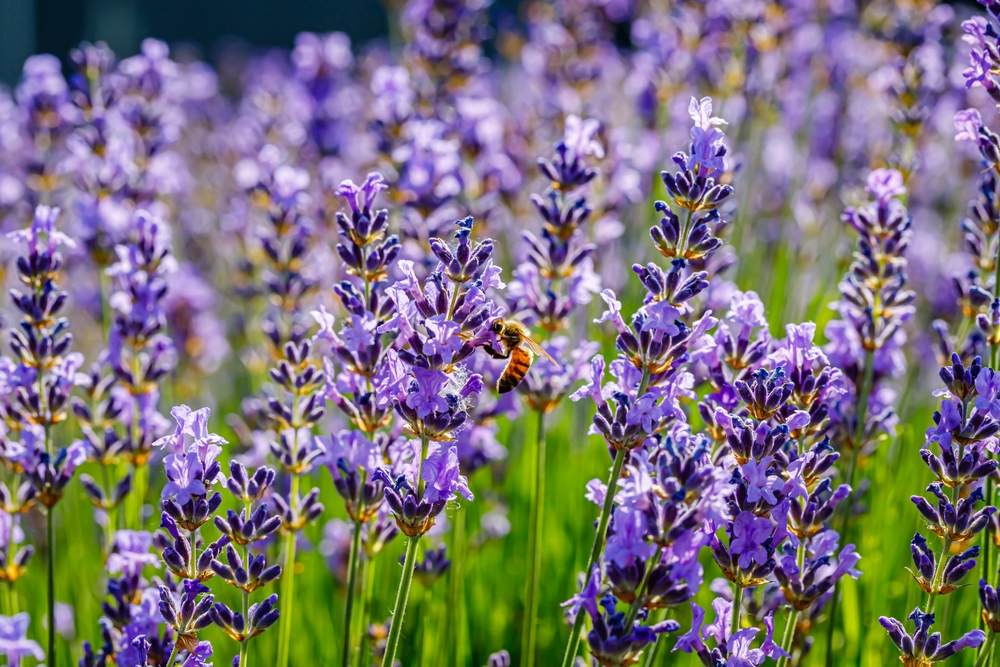
Lavender is a stunning herb that thrives in sunny gardens and offers a lovely fragrance. It is often used in gardens for its ability to repel pests, including ticks. Lavender can be grown in both flower beds and containers, and it does well in well-drained soil. Its purple flowers attract beneficial pollinators like bees, adding both beauty and function to your garden.
This plant requires minimal care and can be pruned to maintain its shape. Lavender’s oils are particularly effective at keeping insects away, making it a valuable addition to any garden. It also offers a calming scent, ideal for outdoor relaxation. Plant lavender near seating areas or garden paths for added protection.
Rosemary

Rosemary is a hardy herb that is perfect for repelling pests while providing a savory addition to your cooking. This evergreen shrub can be grown in full sunlight and does well in dry, well-drained soil. Rosemary’s strong scent works effectively to keep ticks and other pests away from your garden. The plant grows in an upright, bushy manner, making it ideal for borders or herb gardens.
Besides its pest-repelling qualities, rosemary can be used to flavor dishes such as roast meats and vegetables. It requires little maintenance, only occasional pruning to keep it neat. Its rich, fragrant leaves can be harvested for both culinary and ornamental use. Rosemary is a versatile plant that enhances both the beauty and utility of your garden.
Citronella Grass
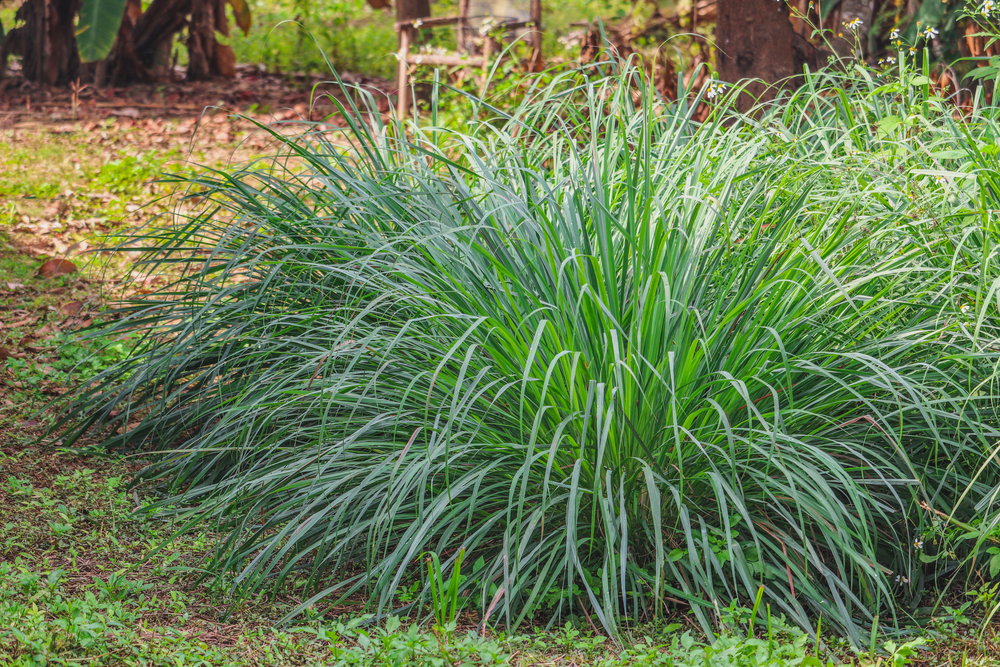
Citronella grass is a tall, ornamental grass that is often associated with repelling mosquitoes, but it also works well to keep ticks away. Known for its strong, citrusy aroma, citronella is ideal for sunny gardens with well-drained soil. It grows quickly and forms a dense hedge, providing both a natural barrier and a visual focal point. The plant is perfect for larger garden spaces or for lining walkways.
Once established, citronella grass is relatively low-maintenance and can tolerate some drought. Crushing its leaves releases a pleasant scent that pests dislike, offering a natural solution for pest control. Its striking, lush green foliage adds a tropical touch to any garden. Citronella grass is also useful when planted near patios or outdoor seating areas to help keep the pests at bay.
Marigolds
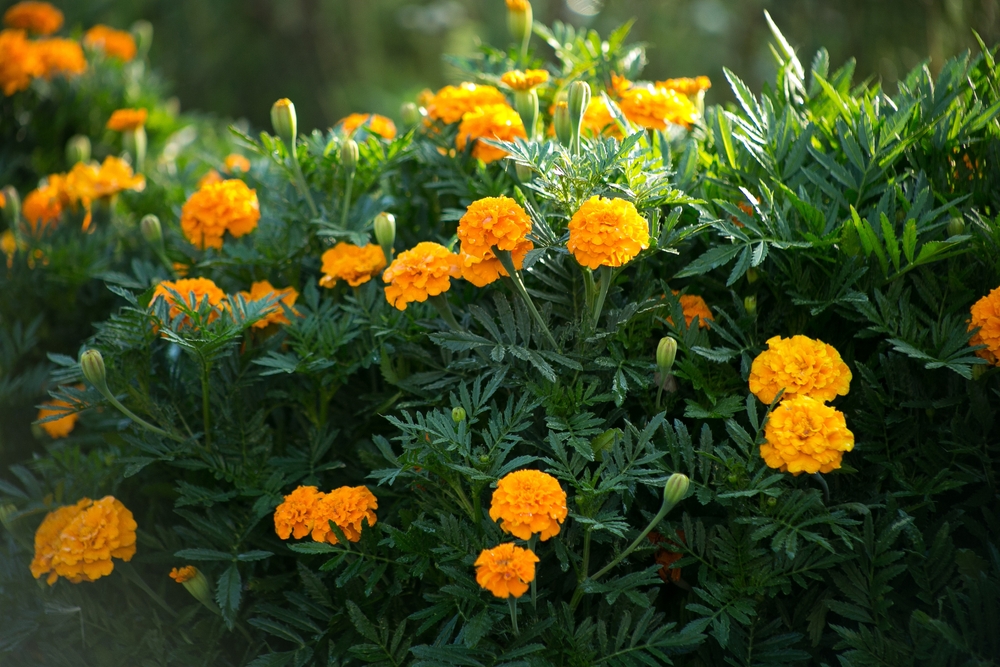
Marigolds are vibrant flowers that do much more than brighten your garden. These hardy plants emit a scent that repels pests such as mosquitoes, ticks, and aphids. Marigolds thrive in sunny spots and well-drained soil, making them perfect for borders or flower beds. Their bright yellow, orange, and red flowers add bold splashes of color to your garden while offering protection from unwanted insects.
Planting marigolds around vegetable gardens or near entryways is an effective way to deter ticks and other pests. They require minimal care and bloom throughout the growing season. Deadheading spent flowers will encourage continuous blooming, providing long-lasting color. Marigolds are an easy and attractive solution for pest control in any garden.
Basil
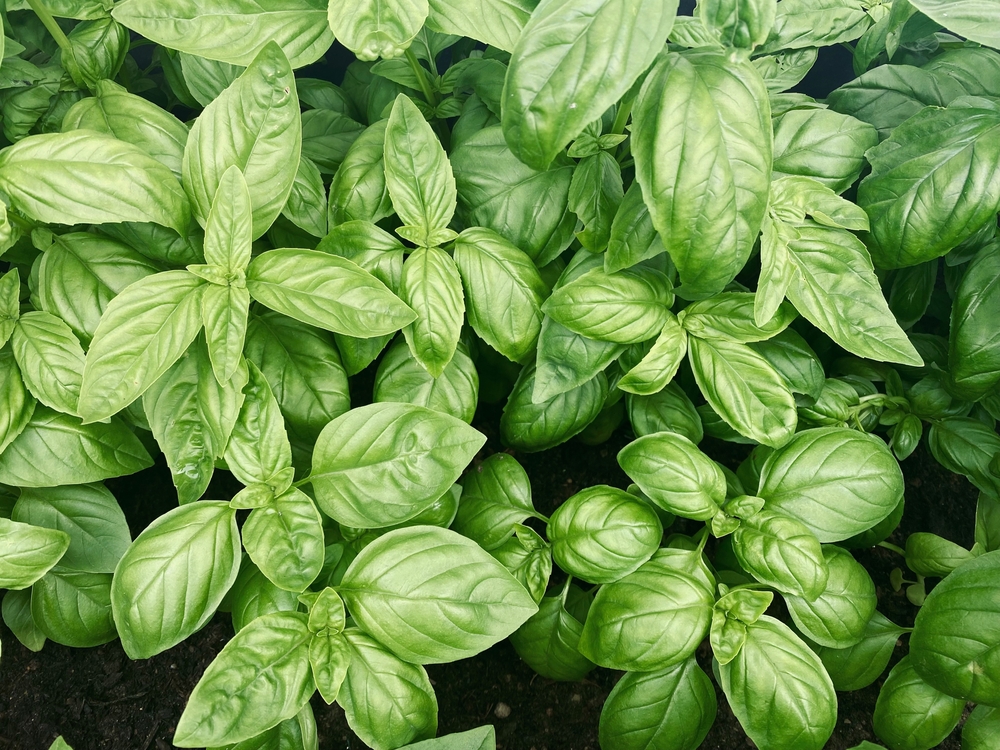
Basil is a versatile herb that grows well in sunny gardens and can help repel ticks and other pests. Its strong scent, particularly when crushed, works to keep unwanted insects at bay. Basil can be grown in pots or flower beds, and it thrives in well-drained soil. The plant produces small, fragrant leaves that are perfect for adding fresh flavor to many dishes.
Besides its culinary uses, basil’s pest-repelling properties make it an excellent addition to any herb garden. It requires regular watering but is otherwise easy to maintain. Basil’s vibrant green leaves create a lush backdrop in gardens and are great for attracting beneficial insects like bees. It is a practical and attractive way to naturally keep ticks and pests away.
Garlic
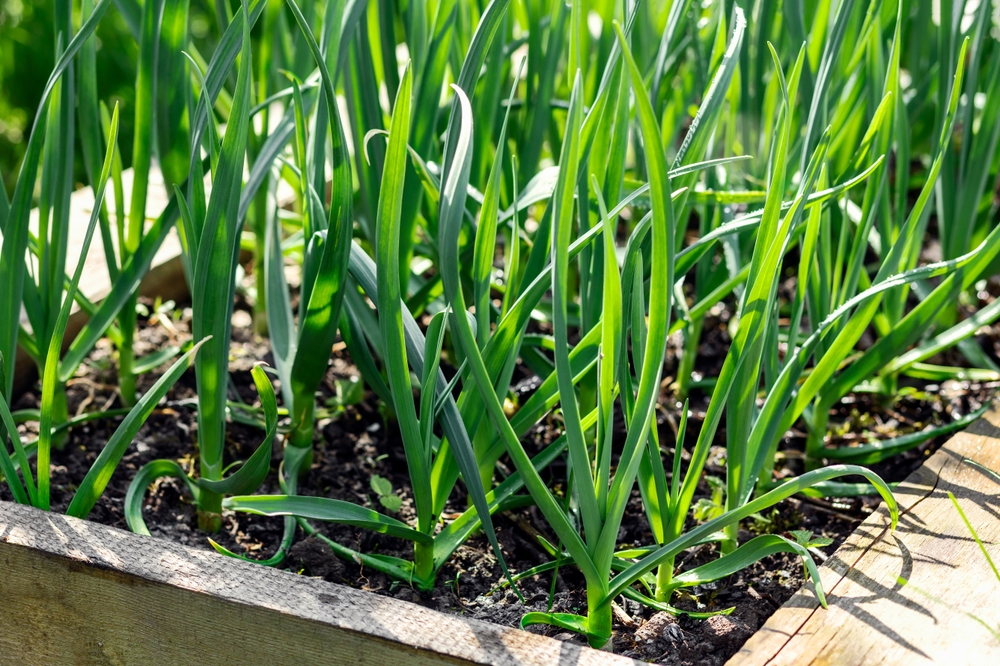
Garlic is a well-known kitchen staple, but it also serves as an effective natural pest repellent. Its strong odor deters ticks, mosquitoes, and other common garden pests. Garlic grows best in well-drained soil and full sunlight, making it a suitable plant for vegetable gardens. The plant’s long, slender leaves and bulbs offer a functional and decorative addition to your garden.
In addition to its pest-repelling qualities, garlic can be harvested for use in cooking. It requires little maintenance and can thrive in most climates. Garlic’s ability to ward off pests makes it an excellent companion plant for vegetables and flowers. It also adds an extra layer of protection to your garden, naturally preventing pests from taking over.
Mint
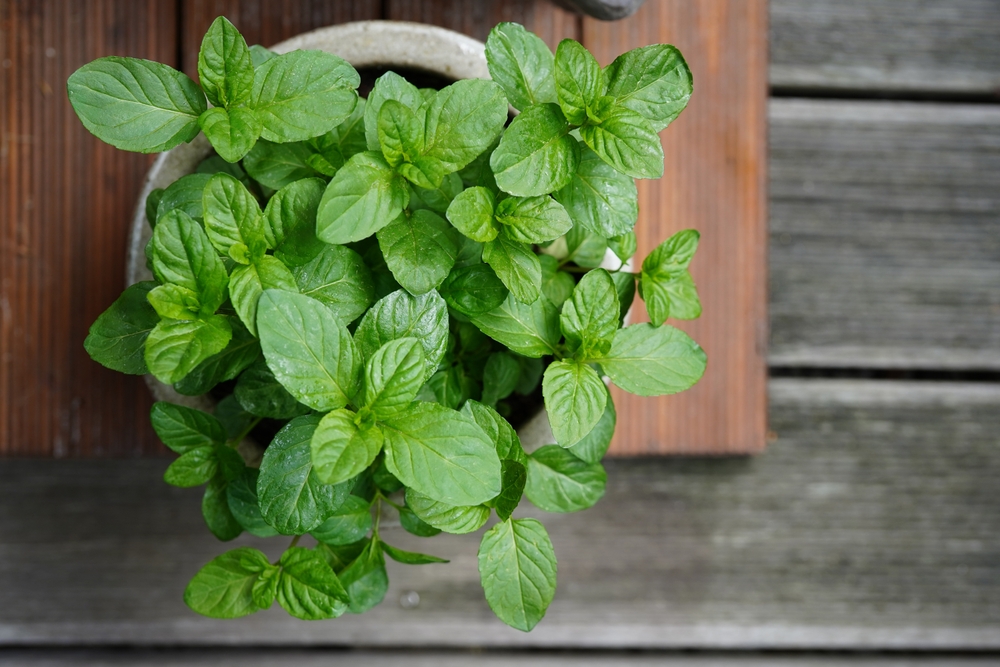
Mint is a hardy, aromatic herb that not only enhances the flavor of many dishes but also helps to repel pests, including ticks. It grows quickly and thrives in moist, well-drained soil, making it ideal for garden beds or containers. Mint produces fragrant leaves that, when crushed, release a strong scent that keeps pests away. Its aggressive growth habit makes it an excellent ground cover, filling in spaces in your garden.
While mint is easy to grow, it can become invasive if left unchecked. To prevent it from overtaking your garden, plant it in containers or regularly prune it. Mint also attracts pollinators like bees, which helps improve the health of your garden. Its fresh, fragrant leaves make it a delightful addition to any garden while serving as a natural pest control solution.
Eucalyptus
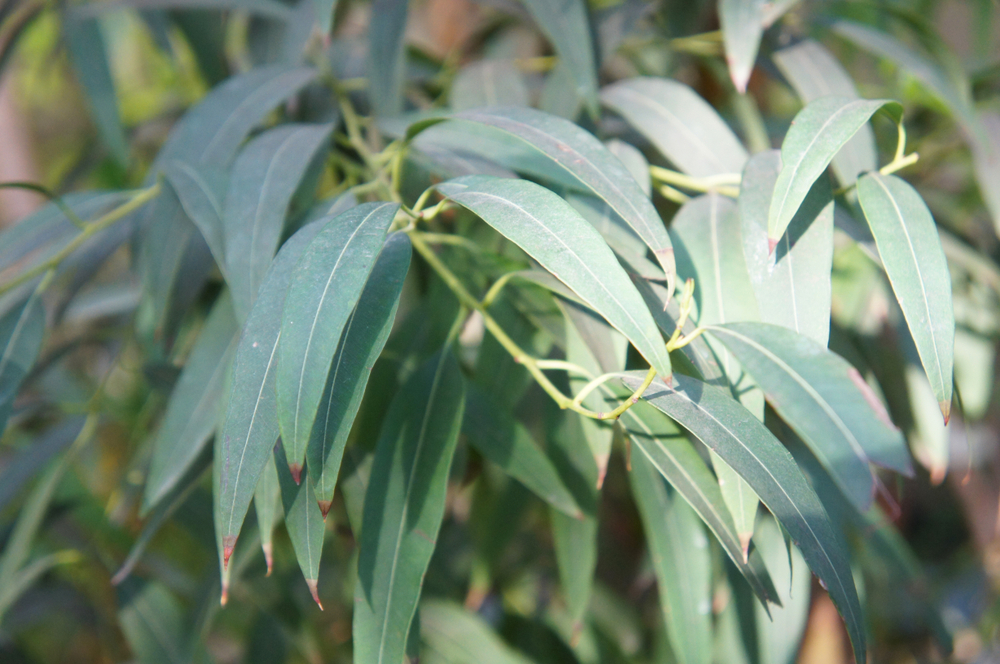
Eucalyptus is a fast-growing tree that provides both beauty and pest-repelling benefits for your garden. Known for its distinct, aromatic leaves, eucalyptus naturally repels ticks and other garden pests. It thrives in full sun and well-drained soil, making it a great option for larger garden spaces or as an ornamental tree. Its silvery-green foliage creates a stunning contrast against other plants in the garden.
Eucalyptus is low-maintenance and drought-tolerant once established, making it ideal for dry climates. The plant also releases oils that are known for their ability to deter mosquitoes, ticks, and other insects. Its tall, elegant form and fragrant leaves add both visual appeal and practicality to any garden. Consider planting eucalyptus in a corner or along the perimeter of your garden for maximum effect.
Pennyroyal
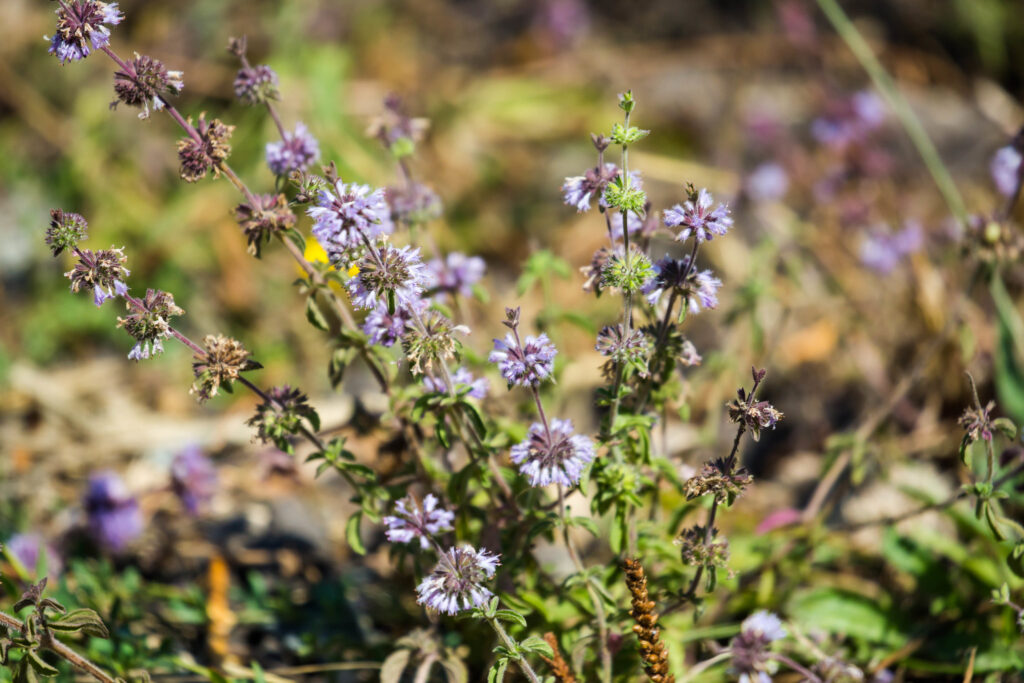
Pennyroyal is a lesser-known herb that is highly effective at repelling ticks and other pests. It produces small, minty leaves that are highly aromatic, making it a natural insect deterrent. Pennyroyal thrives in well-drained soil and partial shade, making it a great option for shady garden areas or as ground cover. Its small, purple flowers add a subtle touch of color to the garden, enhancing its overall appeal.
This herb is easy to grow and maintain, though it can spread quickly, so it is best suited for contained areas. Pennyroyal is often used in combination with other pest-repelling plants to create a barrier around your garden. Its strong scent is known to keep ticks and mosquitoes at bay, providing a more comfortable outdoor space. Pennyroyal also attracts pollinators, making it a valuable addition to any garden.
Chrysanthemums

Chrysanthemums, or mums, are not only beautiful flowers but also natural pest repellents. They contain a compound called pyrethrum, which is toxic to ticks, mosquitoes, and other pests. These flowers come in a variety of colors, including red, yellow, and white, adding beauty to your garden while keeping pests away. Chrysanthemums thrive in full sun and well-drained soil, making them easy to grow.
In addition to their pest-repelling properties, chrysanthemums are long-lasting flowers that bloom late in the season. Their vibrant colors add a burst of life to gardens, and they can be planted in flower beds or containers. Chrysanthemums are also great for attracting pollinators and beneficial insects. Their dual purpose as both ornamental plants and pest deterrents makes them a must-have for any garden.
Tansy
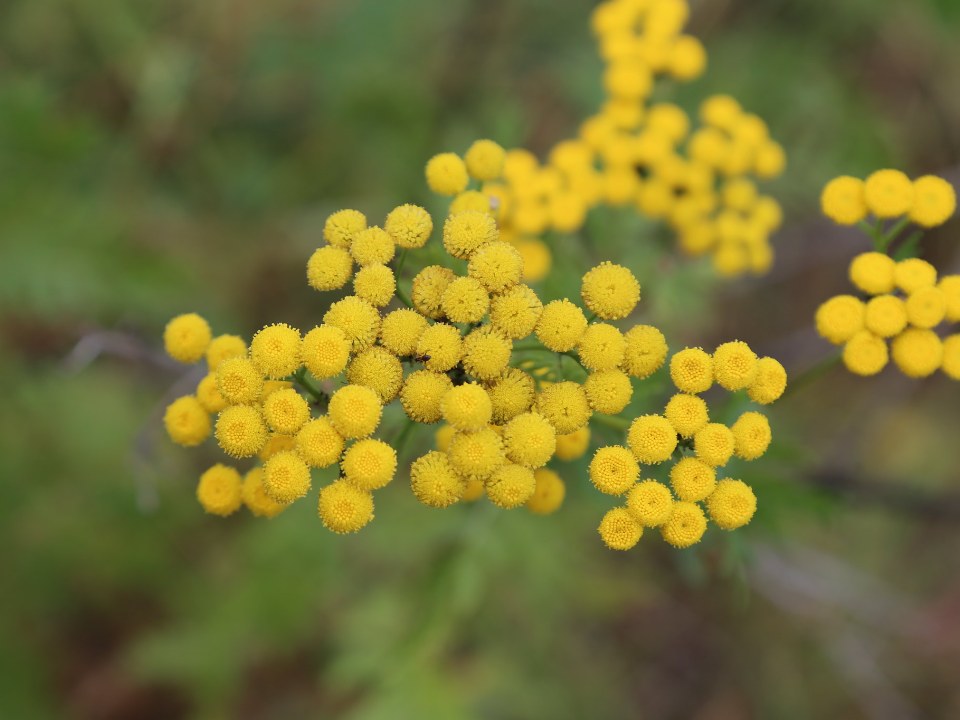
Tansy is a perennial plant that is known for its ability to repel a variety of pests, including ticks. Its small, yellow button-like flowers stand out in any garden and add a pop of color. Tansy grows best in well-drained soil and full sunlight, making it ideal for borders or as a companion plant in vegetable gardens. Its aromatic leaves are known to keep insects at bay, making it a natural pest control solution.
Tansy is easy to grow and requires minimal care once established. While it can spread aggressively, it is perfect for filling in empty spaces in the garden. The plant’s bright yellow blooms add a cheerful touch, while its pest-repelling qualities make it a functional choice for any garden. Tansy is often used in conjunction with other pest-repelling plants to create an effective barrier against ticks and other garden pests.
Yarrow
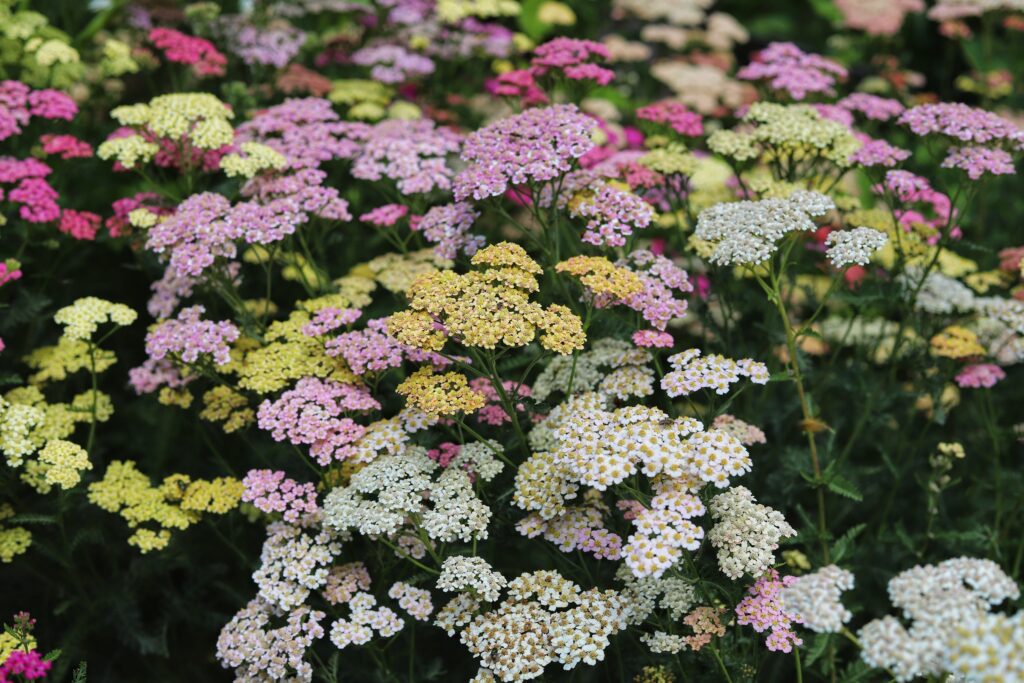
Yarrow is a hardy perennial plant known for its ability to repel ticks and other pests. Its clusters of small, white or yellow flowers bloom in the summer, attracting pollinators while keeping pests at bay. Yarrow thrives in full sun and well-drained soil, making it ideal for garden beds or wildflower meadows. It is also drought-tolerant once established, making it a low-maintenance addition to your garden.
The plant’s leaves are aromatic, and crushing them releases a scent that deters ticks and mosquitoes. Yarrow is often used in natural remedies, adding another layer of versatility to this plant. It also attracts beneficial insects like ladybugs, which help control aphids and other pests. Yarrow’s beauty and pest-repelling qualities make it a valuable addition to any garden.
This article originally appeared on Avocadu.
